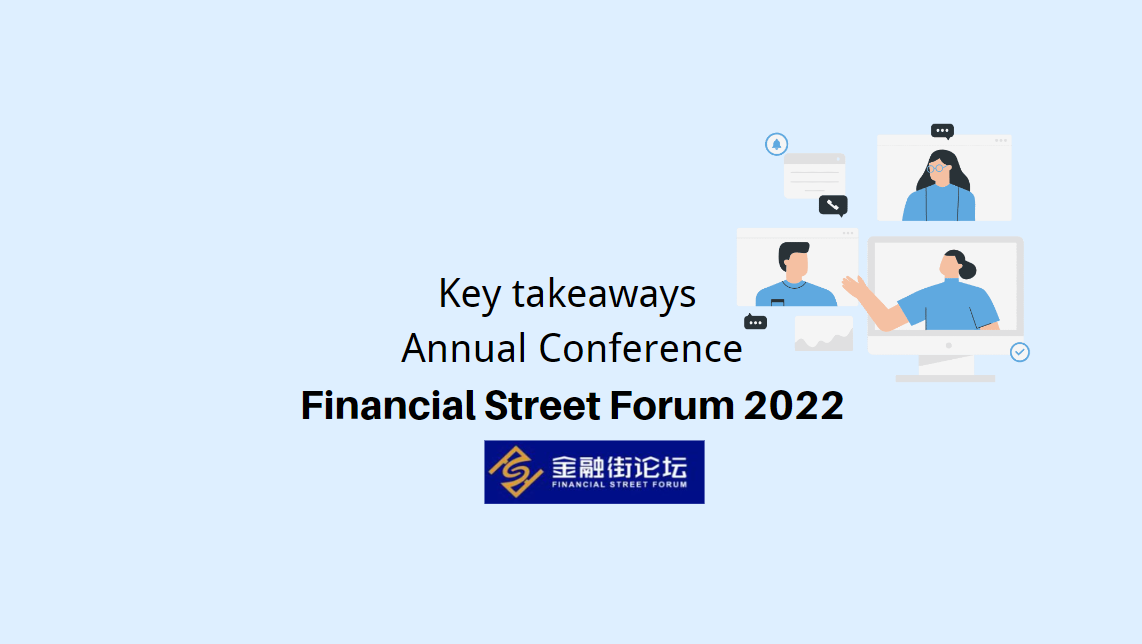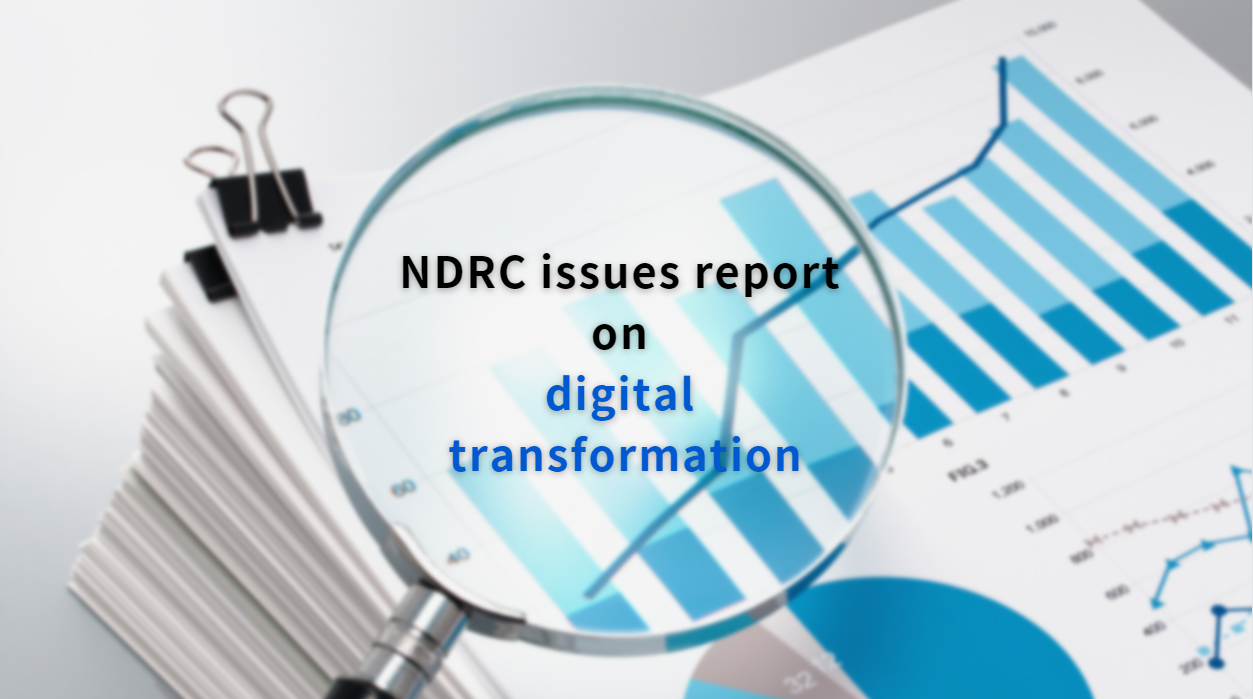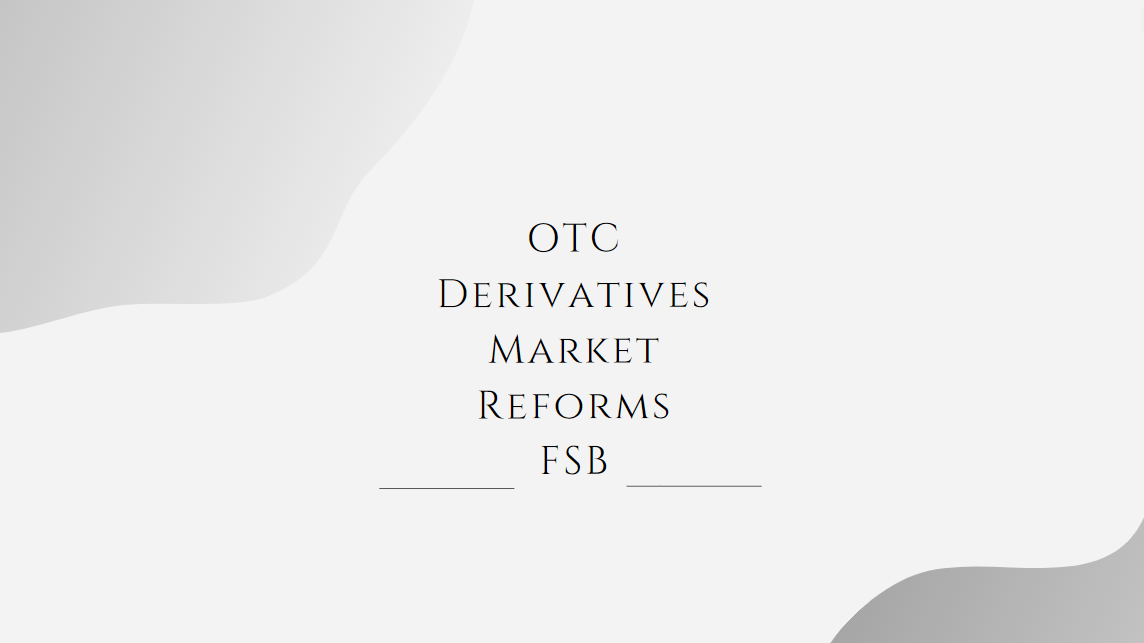To Improve Corporate Governance is the Top Priority in Financial Institutions Reform
Most financial institutions are characterized by strong externalities, high financial leverage and significant information asymmetry. Only through sound corporate governance can the institutions realize effective self-discipline, thus building good market images, gaining public trust and achieving sound and sustainable development.
Positive progress has been achieved in the corporate governance reform of banking and insurance industries.
First, the ownership structure has been diversified. Through a variety of approaches, including shareholding reform and domestic and overseas stock market listings, banks and insurance companies have introduced private capital and nurtured diversified ownership structures composed of state-owned shareholders, institutional investors, and public share ownership. Big state-owned banks explored listing at home and abroad at early stages, bringing changes to the single ownership structure. Joint-stock banks, urban commercial banks and rural commercial banks have experienced gradual diversification in ownership structure. Overseas commercial banks have established 41 foreign-funded incorporated banks and 115 branches in China’s domestic financial markets. At present, private capital accounts for 49 percent ownership of insurance companies, and around 27 percent of them are foreign-funded.
Second, the organizational framework of corporate governance has basically taken shape. Banks and insurance companies have widely established the organizational framework of corporate governance, which mainly consists of the shareholder meeting, the board of directors, the board of supervisors and senior management. Meanwhile, the corporate governance structure has taken its shape, within which the four bodies assume their respective duties, enable effective checks and balances, and function in a coordinated manner. State-holding banks and insurance companies explicitly clarify the position of Party organizations in corporate governance in their Articles of Association, and adopt relevant mechanisms and arrangements including “cross-representation by members in the Party committee of an institution and the senior management who are Party members” as well as a combination of intra-Party supervision and internal corporate control, so as to ensure that Party organizations play a tangible role in charting the direction, exercising overall governance, and overseeing policy implementation.
Third, the operational mechanism for corporate governance has become increasingly standardized. The status and functions of the board of directors have been gradually enhanced through measures including establishing special committees under the board of directors, optimizing the structure of the board and strengthening the independence and professionalism of the directors. Duty performance assessment, as well as incentive and restraint mechanisms for directors, supervisors, and senior management have been established preliminarily. Steps have been taken to advance the performance appraisal mechanism which takes both returns and risks into account and combines long-term and short-term incentives, as well as to increase the weight of risk compliance indicators in performance appraisal, and introduce the system of deferred payment and clawback of performance-based remuneration. Internal audit has become increasingly independent and effective.
Fourth, business development models have been continuously improved. As the banking sector has basically established the modern business philosophy of capital constraint, major institutions have attached great importance to economic capital, economic value added and risk-adjusted return on capital (RAROC), and applied these concepts in business. All these developments contribute to the market-orientation and standardization of capital allocation, risk coverage and mechanisms for incentive and appraisal. The risk-oriented second-generation solvency supervision system has been launched in the insurance sector, with a view to accelerating the transition from focusing on growth in scale to growth with high quality and efficiency.
Fifth, mechanisms for risk management and internal control have been continuously improved. Most banks and insurance companies have adopted comprehensive risk management strategies with establishment of independent risk management departments. System framework has been improved in terms of the identification, measurement, monitoring, and control of risks with unified management implemented. The operational model of “three lines of defense” has been initially set up, under which the front, middle and back offices check and balance each other, with diverse risks incorporated into the comprehensive risk management system.
Meanwhile, we need to be seriously aware that there exists certain distance between the corporate governance of financial institutions in China and the requirements of high-quality development. The corporate governance has yet to fully adapt to the rapid growth of the financial sector and the increasing complexity and openness of the financial system, as well as to fully match the defining features of modern financial institutions which include correspondence between rights and responsibilities, compatibility between incentives and restraints, and rigorous risk control. This is mainly manifested in the following aspects: in some institutions the Party leadership and Party building are still weak; equity relations are not transparent and well-regulated; non-compliant and imprudent conduct exists with shareholders; the board of directors cannot effectively perform its duties; the responsibilities and position of senior management are not well-defined; the board of supervisors cannot practise sufficient supervision; strategic planning and performance appraisal are not based on scientific approaches. For small and medium-sized banks, insurance companies and trust companies, the most noticeable negative cases lie in the manipulation and control over internal issues by major shareholders, as well as the widespread phenomenon of administrative intervention.
Measures should be taken on multiple fronts to better the corporate governance mechanism.
First, efforts should be made to ensure that financial institutions assume primary responsibilities. It is the top priority for financial institutions to improve corporate governance, in a bid to deepen reforms and realize high-quality development. Banks and insurance companies should earnestly follow the decisions and arrangements of the CPC Central Committee and the State Council to establish and improve a modern corporate system both with Chinese characteristics and in line with international rules. At the G20 Hangzhou Summit presided over by President Xi Jinping in 2016, the communique published explicitly pledged support for the OECD Principles of Corporate Governance and OECD High-Level Principles on SME Financing. As long as we draw on good practices based on China’s realities, and fully leverage the advantage of Party leadership, our practices of modern corporate governance is sure to rank among the world’s top tier. To be more specific, we need to conscientiously summarize the experience and lessons, work in line with the norms, standards, governance frameworks, and major contents specified in corporate governance guidelines, continuously improve the legal person governance structure, and constantly enhance the effectiveness of corporate governance.
Second, regulators should take corporate governance as a basic regulatory requirement. More effective measures should be taken to promote the regulation of corporate governance. Continuous attention should be paid to the integration of Party leadership and corporate governance in banks and insurance companies, in a bid to ensure that relevant laws, regulations, the Constitution of the Communist Party of China and the Party’s code of conduct are implemented and the modern corporate system is put in place in a solid and meticulous manner. Effective measures should be taken to enhance the evaluation, guidance and supervision of corporate governance in banks and insurance companies, especially small and medium-sized ones, to regularly evaluate the soundness and effectiveness of the corporate governance and to take forceful and timely measures to correct material weaknesses, especially those heavily damaging the institutional interests. The regulation of shareholders’ conduct should be strengthened. For any shareholder who seeks control of banks and insurance companies in a disguised form by concealing related shareholders’ information or through entrusted shareholding or other means, the regulators should order the shareholder to transfer his/her equities or restrict the shareholder’s rights. Further steps should be taken to strengthen the supervision and inspection of duty performance assessment and remuneration appraisal of the shareholder meeting, the board of directors, the board of supervisors, and senior management. Those who do not perform duties, improperly perform duties or get involved in improper incentives should be held fully accountable.
Third, Party leadership strengthening and party building should be effectively put into place. Except for a few financial institutions at the central level, most banks, insurance companies and trust institutions attach their Party organizational relations to local Party organizations. In order to change weak Party leadership, Party building should be strengthened in both political and organizational terms. Party leadership should be integrated into every aspect of corporate governance, so as to ensure effective implementation of all decisions and arrangements of the CPC Central Committee. Based on real conditions of different institutions, we need to proactively explore specific approaches and methods to leverage the role of Party organizations, unite all parties concerned to build consensus, and facilitate the implementation of resolutions made by the shareholder meeting, the board of directors, the board of supervisors, and senior management. With enhanced Party leadership, state-owned and state-holding banks and insurance companies will play an exemplary role in complying with laws and regulations, serving customers, practicing democratic management, and assuming social responsibilities. For banks and insurance companies with private capital as majority in ownership or controlled by foreign capital, Party organizations should be established and improved according to real conditions so as to proactively explore an effective approach to exert their role as a political core and jointly bolster sustainable and healthy development of these institutions.
Fourth, equity ties of financial institutions should be overhauled and regulated according to the law. Financial regulatory agencies should cooperate with local governments at all levels in the reform and rectification of financial institutions, such as city commercial banks, rural commercial banks, and rural credit cooperatives, by firmly defending three bottom lines. The first is long-term stability. Property rights should be protected according to the law, and the equity structure should be improved while avoiding disruption to the overall structure. Work should be done via share sales by large shareholders, share capital increases, the expansion of opening-up and some other means to introduce strategic shareholders who value long-term development and have solid capital as well as rich experience in management. While deepening the reform of small and medium-sized financial institutions entails many mergers and restructurings, the dominant role of social capital will remain unchanged. The second bottom line is transparency and integrity. Measures should be taken to strictly regulate equity management and screen shareholder qualifications, to effectively identify major shareholders as well as their controlling shareholders, actual controllers, affiliates, persons acting in concert and ultimate beneficiaries, and to improve equity transparency. The third bottom line is fairness and appropriateness. Concrete efforts should be made to strengthen restraints on the conduct of shareholders by further regulating such conduct as equity pledge and share transfer, exerting tight control over related-party transactions, and strictly restraining the conduct of controlling shareholders so as to prevent them from intervening improperly in management and infringing on the interests of minority shareholders. Furthermore, existing equities contrary to regulations should be dealt with in an orderly manner in line with the principles of law compliance, categorized resolution and prudent advancement.
Fifth, the oversight role of the market, intermediaries and stakeholders should be brought into full play.As financial market entities, intermediaries and stakeholders are all important contributing forces to corporate governance, efforts should be made to build mechanisms that give play to their oversight role. First, we should enhance the protection of the legitimate rights and interests of clients, employees, trading counterparties as well as upstream and downstream suppliers, and respect the rights of stakeholders. A relief mechanism should be established while work should be done to encourage employees to take part in corporate governance, guarantee their right to know, support their filing of complaints, and safeguard the interests of creditors. Second, we should encourage all types of fund companies, wealth management companies and securities firms to keep an eye on the corporate governance of financial institutions, while accounting firms, law firms and credit rating agencies should be encouraged to be more active in guiding, helping and urging financial institutions to improve their corporate governance, and to assume more social responsibilities while following business principles. Third, laws and regulations on information disclosure should be improved. In particular, we should set out more detailed requirements for large investors disclosing information on conflicts of interest, regulate the scope and content of disclosures, and improve their quality so that the market price of shares truly reflects the status of corporate governance. Fourth, we should strengthen public oversight over banks and insurance companies by establishing a long-term mechanism and subjecting them to oversight through the media and public opinion.
Continued efforts should be made to improve the corporate governance structure of banks and insurance companies.
Corporate governance can never be perfect. Improving corporate governance is forever a task for modern banks and insurance companies.
The building of the board of directors should be strengthened. The duties and responsibilities of the board of directors should be clearly defined so that they play a central role in strategic decision-making. The board of directors must take the responsibility of business decision-making independently in accordance with its mandate granted by the Articles of Association and the meeting of shareholders, and bear corresponding legal liability. More importance should be attached to capacity building to enhance the performance of board directors. Work needs to be done to improve the selection of directors, the composition of the board as well as the performance assessment and accountability of directors so as to make them more professional and independent. Special attention should be paid to the performance of independent directors by selecting them through multiple channels and guiding them to play their part. Special committees should be established or enhanced to ensure that they offer independent and professional advice to the board. Moreover, the board of directors should strictly follow professional ethics, perform its duties prudentially and loyally, treat all shareholders equally by paying no less attention to small shareholders and respecting their demands, and do its best to protect the interests of the company.
The board of supervisors should play a substantive role. The structure of the board of supervisors should be improved to see external supervisors make up a larger share. Specifically, the board of supervisors is accountable to the shareholder meeting so as to ensure that it performs its supervisory duties independently according to the law. Measures need to be taken to push the board of supervisors to do its part well in supervising financial affairs, internal control and due diligence. It should conduct regular inspections on business decision-making and risk management and urge its company to make rectifications. In the meantime, both internal and external audits can be resorted to. A mechanism should be established for regular exchanges between supervisors and independent directors to enhance information sharing. It is also necessary to establish mechanisms for investigation, result handover and the ensuing rectification based on supervisory results in a move to reinforce the application of these results.
The conduct of senior management in their performance of duties should be well-regulated. Solid actions should be taken to step up the enforcement of management responsibilities. The information reporting system under which senior management is required to report to the board of directors, the board of supervisors and various special committees should be improved, and many other systems, such as those for job exchange and accountability of duty performance, should be strictly put in place. It should be ensured that senior management conduct business and management activities as mandated by Articles of Association and the board of directors, with stringent caution against insider control. The relationship between in-house governance bodies should be properly handled, and the mandate given by the board of directors to senior management with regard to business activities should be reasonably optimized, with a view to shortening the process of decision-making and enhancing its efficiency. The board of directors should be strictly restricted from inappropriately intervening in the business and management activities conducted by senior management. Meanwhile, measures should be taken to build the system of market-oriented recruitment of professional managers, in order to constantly enhance the expertise and competency of senior management.
Development strategy plans should be refined. With a well-defined strategic positioning, financial institutions need to take into account factors including macroeconomic situations, risk tolerance and comparative advantages, and, by following the principle of serving the real economy, identify a clear market positioning while highlighting differentiated and distinctive features. The management of development strategies should be strengthened. For this purpose, the board of directors and the board of supervisors should regularly assess and review the development strategies. The management should develop annual business plans under the development strategy framework. Institutions should also uphold reform and innovation, closely follow the changes in financial situations and technological advances both at home and abroad, and carry out forward-looking research planning. At the same time, they should maintain strategic focus and refrain from short-sighted and aggressive behaviors, so as to ensure the consistency of development strategies.
The incentive and restraint mechanisms should be optimized. Following the principle of balancing returns and risks, long-term and short-term incentives and spiritual and material incentives, institutions should endeavor to constantly improve the performance appraisal mechanism, so as to realize sustainable development and strategic goals. While giving full consideration to factors such as social and economic development, market changes, development strategies and risk preference, they should also improve appraisal indicator systems, giving less weight to indicators of quantity and instead attaching greater weight to indicators of quality, risks and compliance. With regard to the posts on which major risks may arise and to the personnel who have significant influence on sound development, the deferred compensation plan should be established. The disclosure of relevant information of senior management is to be strengthened, and a robust external supervision mechanism for remuneration management should be established. Furthermore, institutions should also actively explore new means of incentives, particularly spiritual support for both senior management and employees at the grassroots level.
The risk management mechanism should be improved. Based on the rules of “know your customers, know your market, engage all employees and focus on key risks”, vertical, independent risk structures for internal control ought to be established, and matrix risk control networks featuring coordination down the hierarchical structure should be set up to balance growth, efficiency and risks. Comprehensive risk management should be strengthened through upgrading the comprehensive risk management system and developing control indicator systems covering all sorts of important risks, so as to enhance the capacity for comprehensive risk identification, measurement, monitoring and control. Prudent accounting principles need to be upheld, and the risk classification of assets be dynamically adjusted. Where there is any controversy over the risk classification of an asset, the risk should be classified according to the principle of “lean on the stringent side,” and there should be full provisions for the asset, following the strictest standards. The awareness of risk compliance should be strengthened, the principle of business compliance be upheld, and a corporate culture that emphasizes risks and prioritizes compliance be fostered.
Financial institutions should readily assume social responsibilities. The Chinese Constitution and laws grant a wide range of rights and obligations to enterprises and their employees, and can better promote the well-rounded human development and all-round social progress. Financial institutions are expected to continuously improve financial services, vigorously develop inclusive finance and green finance, support targeted poverty alleviation and the arduous task of pollution prevention and control, and continuously step up financial consumer protection. Efforts should be made to develop a strong sense of corporate citizenship and strengthen the sense of responsibility for serving the country, society and the people. They should also be encouraged to actively participate in public welfare undertakings and regularly issue social responsibility reports in accordance with the laws and Articles of Association. Additionally, they should attend closely to the management of public relations and consciously accept oversight from all sides of the society.
Building a modern governance system with Chinese characteristics for financial institutions is an arduous task with far-reaching significance. The financial system should rally closely around the Party Central Committee with Comrade Xi Jinping at its core. We should keep firmly in mind the need to maintain political integrity, think in big-picture terms, follow the leadership core, and keep in alignment with the central Party leadership. We should strengthen our confidence in the path, theory, system and culture of socialism with Chinese characteristics. We should resolutely uphold General Secretary Xi Jinping’s core position on the Party Central Committee and in the Party as a whole, and resolutely uphold the Party Central Committee’s authority and its centralized, unified leadership. Meanwhile, we should firmly implement the decisions and arrangements of the Party Central Committee, make continued efforts to bolster the scientific, robust and effective corporate governance of enterprises so as to make greater contributions to fighting the tough battle of preventing financial risks and completing the building of a moderately prosperous society in all respects.






















































First, please LoginComment After ~